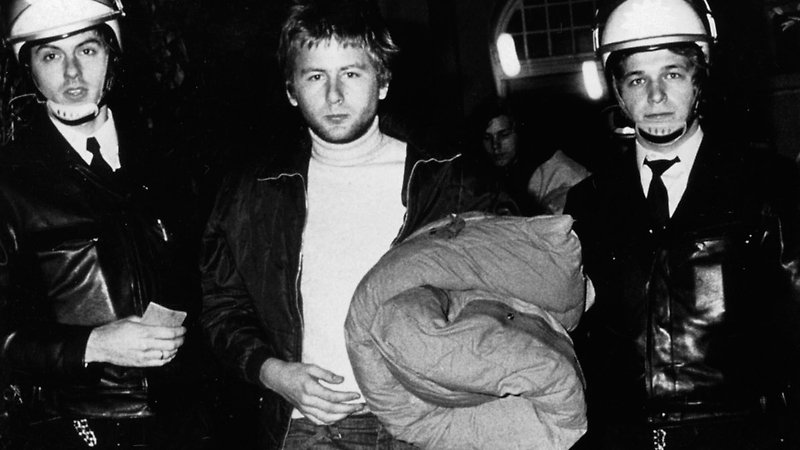
Screened as part of NZIFF 2003
Black Box Germany 2001
Black Box BRD
On 30 November 1989, Alfred Herrhausen, spokesman for the board of the Deutsche Bank, kissed his wife Traudl goodbye and drove off to work, flanked by his customary armed escort. A few minutes after his departure, Traudl Herrhausen heard the blast as her husband’s car went up in flames. Black Box Germany is a tough little film that shrewdly dissects this explosive event, tracing the life journeys of Herrhausen and the man accused of his murder, Wolfgang ‘Gaks’ Grams. Grams had risen through the ranks of student activist groups in the 60s and 70s to become one of Germany’s most notorious anti-capitalist terrorists. He was identified by police as a prime suspect for the bombing, but didn’t survive his 1993 arrest to stand trial for murder.
These twin stories are related through interviews with friends and colleagues, excellent archival footage, and coolly atmospheric footage of blank skyscrapers, bleak autobahns, lobbies under surveillance. The materials are assembled with a superb precision and thoroughness by Andres Veiel, but what makes this measured autopsy of a conflagration truly compelling is the way in which these two contrasting lives encompass so much of modern German (and European) history: the East-West divide, post-war prosperity and complacency, student unrest in the 60s, Baader-Meinhof and the RAF. The twin trajectories of these two dead men trail the twentieth century.
For all that the film’s inexorable logic pre-empts suspense – the fates of both men are revealed in full at the beginning of the film, and thereafter their individual histories seem to make a bee-line for that particular cataclysm – surprises abound for the receptive viewer. Herrhausen, the consummate professional, seems a corporate cipher for much of the film, yet reveals a passionate commitment to forgiving third-world debt at the eleventh hour. Similarly, Grams only gradually emerges from behind his radical mask, his vulnerable side most vividly illuminated by the touching recollections of his uncomprehending parents. In Black Box Germany, Veiel’s dispassionate gaze ultimately allows both men to transcend the merely symbolic aspect of their historical roles. — Andrew Langridge